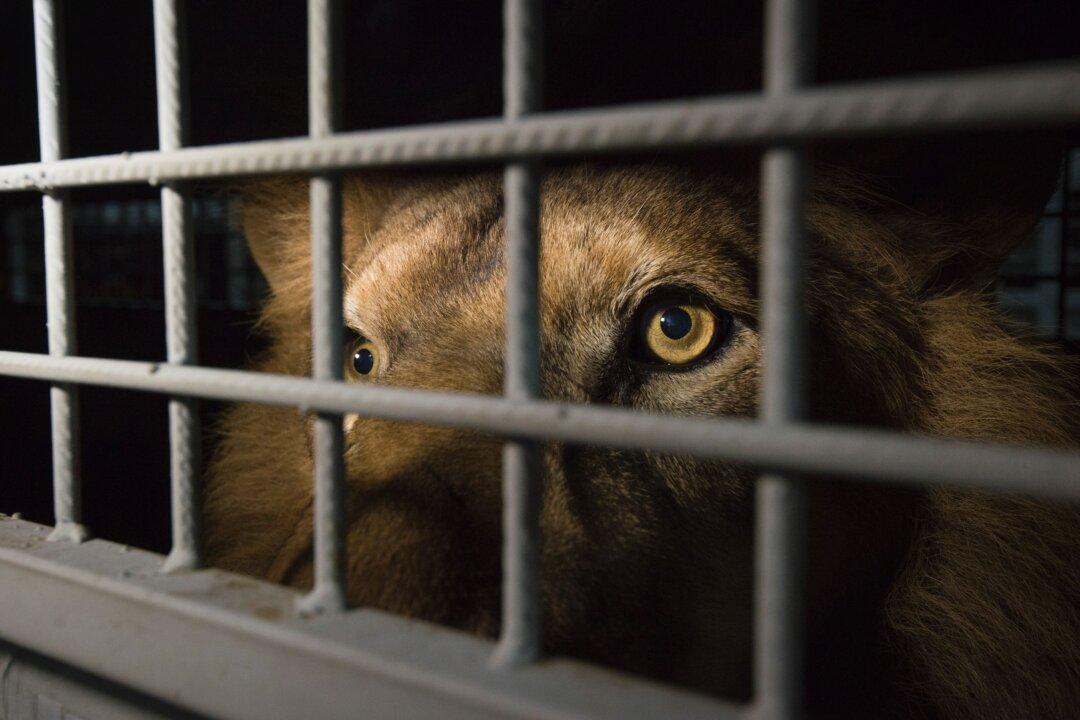Two lions rescued from circuses in Colombia and brought to a South African refuge in April have both died, the rescue organization responsible for transporting the lions said on its website.
The group, Animal Defenders International (ADI), said the two big cats died from a botulism toxin---of which most lions are resistant. Other lions in the group were also exposed to the toxin but responded well to treatment.
ADI said the two dead lions, named Kala and Rapunzel, are part of a group of 44 at the Emoyo reserve.
“We know that the animals we rescue from a lifetime of malnutrition and abuse are always going to be vulnerable, despite our best efforts with food, veterinary treatment and vitamin supplements. Indeed both of Rapunzel’s parents had died in the circus cage with Rapunzel—her father, from a bacterial infection,” the group said in a statement on June 3.
The two lions had been in ADI’s care since 2014, and when they arrived, “they had been extremely nervous,” the statement read.





